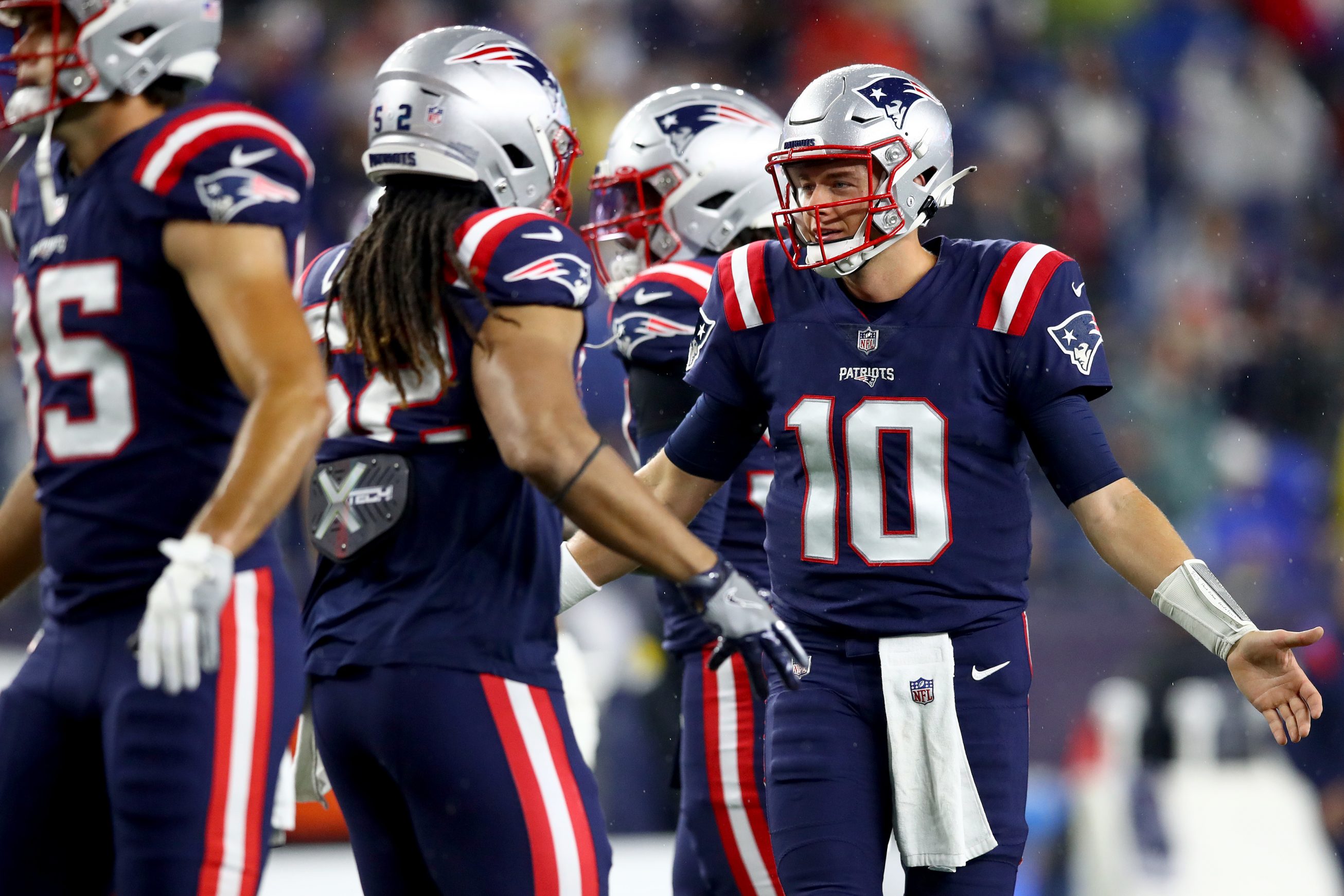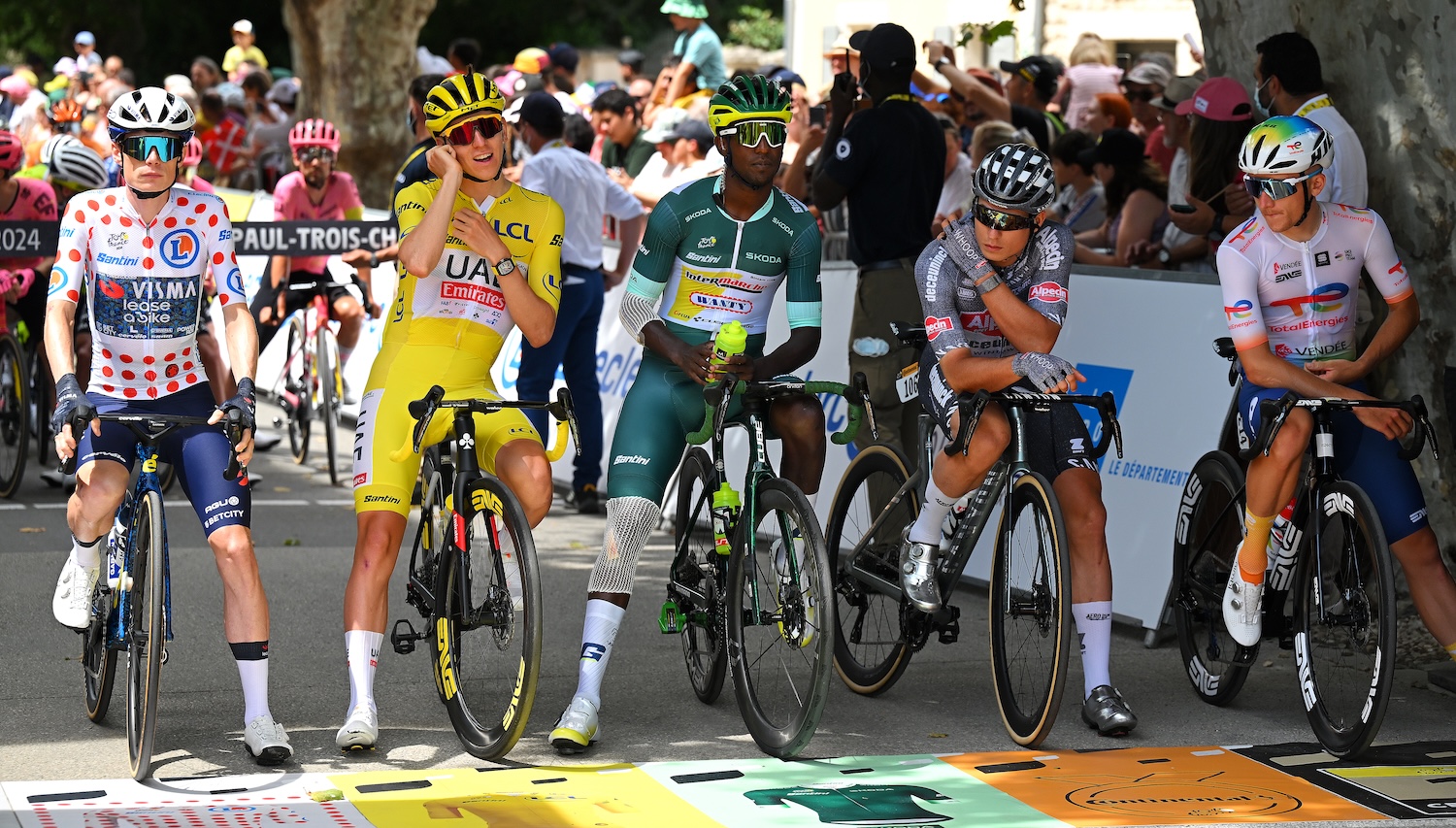Toward the end of New England Patriots' penultimate drive on Sunday night, lead analyst Cris Collinsworth made a guarantee that, even after all the worship and canonization of Tom Brady that had defined the entire NBC broadcast, felt like it was laying on the compliments a little too thick.
"If you give Tom Brady the ball back and all he needs is a field goal to win the game, he's going to get a field goal and he's going to beat you," Collinsworth said with five and a half minutes on the clock.
You don't know that. I responded, annoyed, to nobody in particular. And in fact, even after the Bucs' 19-17 victory in Foxboro—yes, Brady led Tampa down the field for the go-ahead field goal—I stand by my assertion that it was an odd thing to say. For one, the game was being played in a washing machine, as heavy rains pelted the field all night. For two, Brady had been fine but not especially impressive all throughout his heavily hyped homecoming. He finished with a decent final line—22-of-43 for 269 yards, no TDs and no turnovers—but in the second half to that point he had been almost a non-factor. The Bucs had tallied two three-and-outs since coming out of the break, plus a touchdown drive dominated by the running backs where Brady threw the ball for 20 yards, and then a long and grueling journey that ended in a field goal because Brady threw two incompletions inside the New England 10.
But even though Nick Folk's doink miss to give Tampa and Brady the win at the end will stand out as the definitive noise and image from the game, the three plays the Patriots ran on that penultimate drive where they "needed" a touchdown have to be the ones that New England regrets the most this morning. They could have rendered Ryan Succop's leg completely irrelevant, and put the onus back on Brady's arm.
The Patriots, down 16-14 in the fourth, ended up in first-and-goal through the most enjoyable play call of the night—a tricky reverse that got the ball in the hands of Jakobi Meyers and had him throw to Nelson Agholor for 30 delightful yards.
Mac Jones fazendo um ótimo jogo chamando essa trick play para passe do Jakobi Meyers para Nelson Agholor #ForeverNE #NFLBrasil #NFLTwitter pic.twitter.com/CnI2uD5qTX
— NFL Brasil (@NFLBrasil) October 4, 2021
That play came on the heels of three straight Mac Jones completions for a total of 36 yards, and it set the Pats up at the nine with three opportunities to find the end zone and force the Bucs offense to respond with a touchdown of its own. Here is what happened instead:
- First-and-goal: Jones—who had, incredibly, thrown 19 completions in a row at this point—dropped back to pass, sat in the pocket for quite a while, and then sent the ball to no man's land in the far corner of the end zone.
- Second-and-goal: Jones rolled out to his right and threw an extremely ill-advised pass to Jonnu Smith, who was only standing on the 5-yard line anyway. Jones narrowly escaped a Devin White interception.
- Third-and-goal: Jones tossed a useless screen pass to running back Brandon Bolden, who was surrounded by defenders and struggled just to make it back to the line of scrimmage.
- Fourth-and-goal: Nick Folk kicked his 36th consecutive successful field goal for a 17-16 lead.
The conservative one-dimensionality of the play-calling on this series, which consisted of the same short passes and dump-offs that had been the Patriots' offense all game, proved to be its undoing. Blame it on a lack of creativity in the game plan, or blame it on a rookie quarterback, but New England played it safe and got burned, as safe-playing teams usually do. Take away the Shakespearean drama surrounding this game and the long-term arcs of Brady and Belichick and you are left with a much simpler and more useful truth: A series like this is the difference between a 3-1 team, which is what the Bucs are, and a 1-3 team, which is who the Patriots now find themselves.







